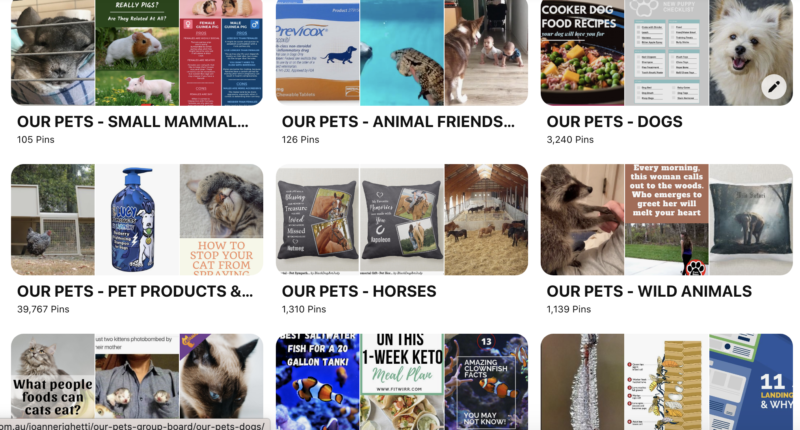Canine Siblings: 2 Dogs from the same litter?
Two dogs can equal double trouble! Especially when you adopt them from the same litter… or so most experts say. But is adopting canine siblings always a disaster?
I have had several family members, friends and clients recently who have taken on two dogs at once, which prompted me to consider the pros and cons of this.

Why people adopt two dogs at once
- To keep one another company while the owners are at work
- One dog per child, to prevent fighting over a single puppy
- The breeder suggested it would be the best thing to do
- The price of the second dog was reduced
- We love puppies!
Why doggy siblings may not be the best idea
- Competition between dogs of similar gender, age, size, status and temperament may be severe, especially between females within the same home
- The two dogs become extremely attached to one another and hate to be separated
- The two dogs, due to bonding to one another, may not bond as strongly to their humans
- Owners may find it more difficult to tend to two dogs with inadequate time for walking or training
Littermate Syndrome
There is no doubt that behaviourists report difficulties between canine siblings. In fact it is so expected that it even has a name… Littermate Syndrome.
I have seen quite a number of clients whose dogs, almost all of these females, were constantly fighting. In the end, their owners, even highly experienced ones, have found the only solution is to separate the dogs permanently, either with an effective barrier (splitting their home and garden in two) or by giving one dog away. A severe compromise! I have also had clients who have succeeded in rehabilitating sibling disagreements.
Perhaps behaviourists and other experts, however, are biased. We tend to only see problem cases. There may be hundreds of thousands of households living in complete harmony with their adopted twin dogs. We don’t hear from them.

If you do have two dogs from the same litter, it may help to do some or all of the following:
Help reduce double trouble with canine siblings
- Give each dog some individual time with you. Walk them, talk to them, feed them, play with them and train them separately. Basically all aspects of puppy care should be conducted separately, at least occasionally, if not on a regular basis. Of course, you can also do all these things with both dogs at the same time too.
- Give the dogs time apart, right from the day you bring them home. Separation anxiety can be a nightmare to live with. Gradually separating the dogs can prevent crying, howling and destructive behaviours when left alone.
- When dogs are separated make sure each has some positive occupation eg. food-releasing toys.
- Consider less obvious scenarios where you might need to give dogs’ experience of being alone. Going to the vet, for instance, or travelling in the car.
- Socialise your puppies well. It is tempting not to introduce your two puppies to other dogs, as they have one another. Often, however, siblings are fearful of unknown dogs, when introduced at a later stage.
- Be aware of any competition for resources in your two dogs. Resources include, food, treats, sleeping spots, toys, your attention.
- Consider waiting a couple of years to adopt your 2nd dog. Just like human babies, twins can be hard work!
- Consider adopting a cat and dog at the same time, if you have enough time, money and commitment 🙂
Being aware of this condition and seeking help if your two dogs are difficult to live with or to separate, is probably the key to working things out with your dogs.
But perhaps you have had no issues at all with your two littermates. Let us know your experiences with two canine siblings.
More about dogs and choosing a pet
- Predicting the behaviour of rescue dogs. New Research to Improve Adoptability
 Predicting the behaviour of rescue dogs : It’s difficult to compare a shelter to a sofa! Are you thinking about adopting a rescue dog from a shelter?
Predicting the behaviour of rescue dogs : It’s difficult to compare a shelter to a sofa! Are you thinking about adopting a rescue dog from a shelter? - The best stage in life to get a pet
 The Best Stage in Life to Get a Pet Are you thinking about getting a pet? But just what is the best stage in life to get a
The Best Stage in Life to Get a Pet Are you thinking about getting a pet? But just what is the best stage in life to get a - 12 Fascinating facts about ferrets
 Ferrets are fun! If you have ever looked for a pet that is easy to keep and acts like an eternal kitten, then consider a ferret or
Ferrets are fun! If you have ever looked for a pet that is easy to keep and acts like an eternal kitten, then consider a ferret or - Keeping chickens as pets
 KEEPING CHICKENS AS PETS Have you ever thought about keeping chickens in your backyard, for their eggs, or simply as pets? I love my chickens but thought
KEEPING CHICKENS AS PETS Have you ever thought about keeping chickens in your backyard, for their eggs, or simply as pets? I love my chickens but thought - Future Pets: Millennials and Pets
 Future Pets: Millennials and PetsAre Your Fur-Kids Your Baby? Our relationship with our animal companions may be changing. They are no longer mere ‘pets’. Instead they have
Future Pets: Millennials and PetsAre Your Fur-Kids Your Baby? Our relationship with our animal companions may be changing. They are no longer mere ‘pets’. Instead they have - Where do puppies come from? Breeders, Shelters or Puppy Farms?
 Where Do Puppies Come From? Where do puppies come from? Simply question, it may seem, but not a simple answer! Where puppies come from Puppies come from
Where Do Puppies Come From? Where do puppies come from? Simply question, it may seem, but not a simple answer! Where puppies come from Puppies come from - Crumbs & Whiskers: Visit to LA Cat Cafe
 CRUMBS & WHISKERS: VISIT TO LA CAT CAFE What does an animal behaviourist do when visiting L.A? While other tourists may visit Beverly HIlls, Sunset Strip or
CRUMBS & WHISKERS: VISIT TO LA CAT CAFE What does an animal behaviourist do when visiting L.A? While other tourists may visit Beverly HIlls, Sunset Strip or - Top 10 Pets for kids: And the Benefits of Children Having Pets
 Kids and pets go together. A top ten of pets for children.
Kids and pets go together. A top ten of pets for children. - Greyhounds make greyt pets: Ask the experts
 Greyhounds make greyt pets! Ask the Experts Australia’s canine experts are in agreement that Greyhounds make a fantastic pet. Here are some highlights of what they have
Greyhounds make greyt pets! Ask the Experts Australia’s canine experts are in agreement that Greyhounds make a fantastic pet. Here are some highlights of what they have
Dogs lovers – join our Pinterest board OUR PETS
















We have two border collies from the same litter – one male and one female. And absolutely no problems with them at all
We have 2 Female Boxers from the same litter. However the second one didn’t come and live with us until they were over 2 years old, this may be part of why they get on so well? We have always right from the beginning made sure that no one misses out! always enough pats, love, toys, training etc for each of them and definitely all treats and regular meals fed separately. They of course have there own crates as their beds as well as various other options for sleeping (including the lounge etc) They have been together now for almost 3 years and so far so good. They play really well together, they rest near each other (by choice) and seek each other out often. We are just always mindful that they are technically litter mates, so we hope they continue this lovely relationship they have with each other and us!
So good to hear of doggy siblings who get along together 🙂